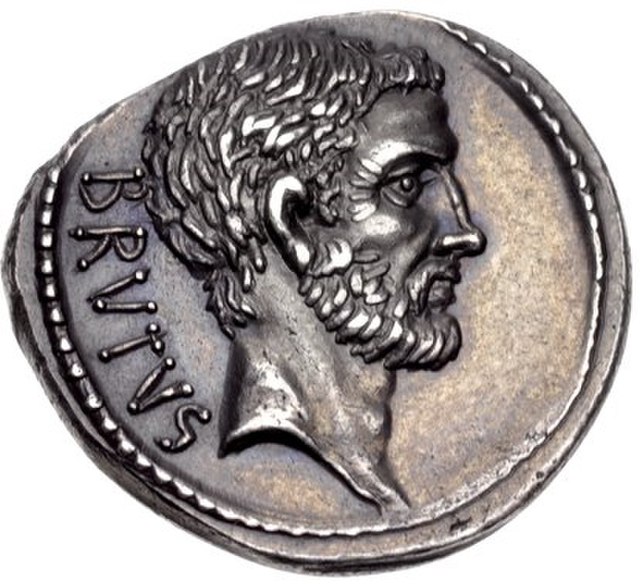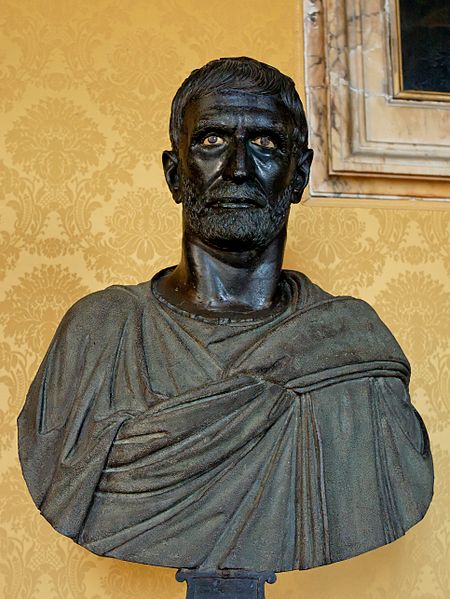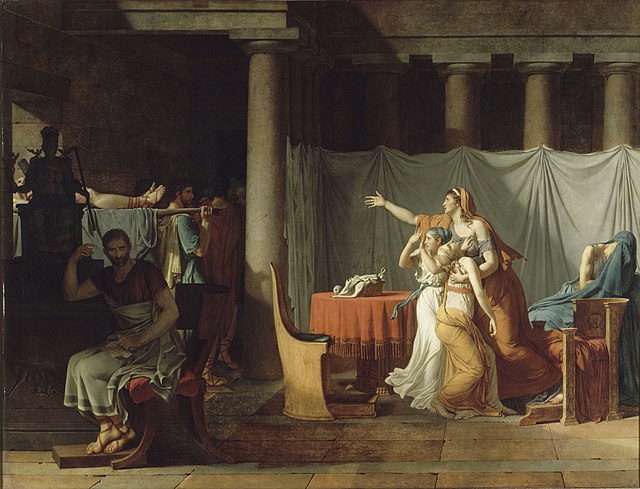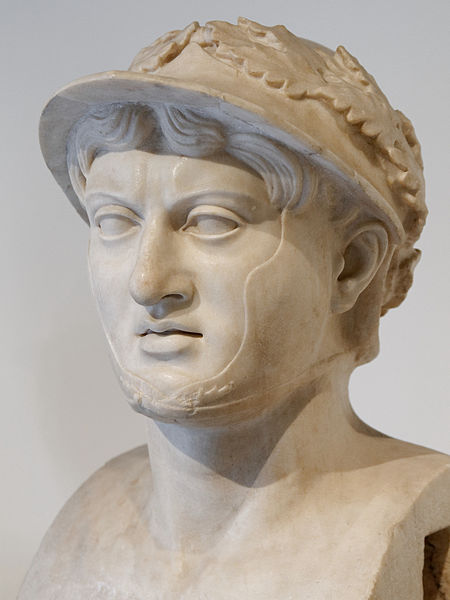Lucius Junius Brutus was the semi-legendary founder of the Roman Republic, and traditionally one of its first consuls in 509 BC. He was reputedly responsible for the expulsion of his uncle the Roman king Tarquinius Superbus after the suicide of Lucretia, which led to the overthrow of the Roman monarchy. He was involved in the abdication of fellow consul Tarquinius Collatinus, and executed two of his sons for plotting the restoration of the Tarquins.
Portrait of Lucius Junius Brutus on a denarius minted by Marcus Junius Brutus in 54 BC
The Capitoline Brutus (now in the Capitoline Museums) is a bronze bust dated 4th to early 3rd centuries BC. It was initially thought to be a bust of Lucius Brutus (hence its name), but modern scholars have rejected this attribution.
"The oath of Brutus" by François-Joseph Navez
The Lictors Bring to Brutus the Bodies of His Sons by David, 1789
The Roman Republic was the era of classical Roman civilization beginning with the overthrow of the Roman Kingdom and ending in 27 BC with the establishment of the Roman Empire. During this period, Rome's control expanded from the city's immediate surroundings to hegemony over the entire Mediterranean world.
Roman Republic
The "Capitoline Brutus", a bust possibly depicting Lucius Junius Brutus, who led the revolt against Rome's last king and was a founder of the Republic.
Bust of Pyrrhus, found in the Villa of the Papyri at Herculaneum, now in the Naples Archaeological Museum.
Coin of Hiero II of Syracuse








